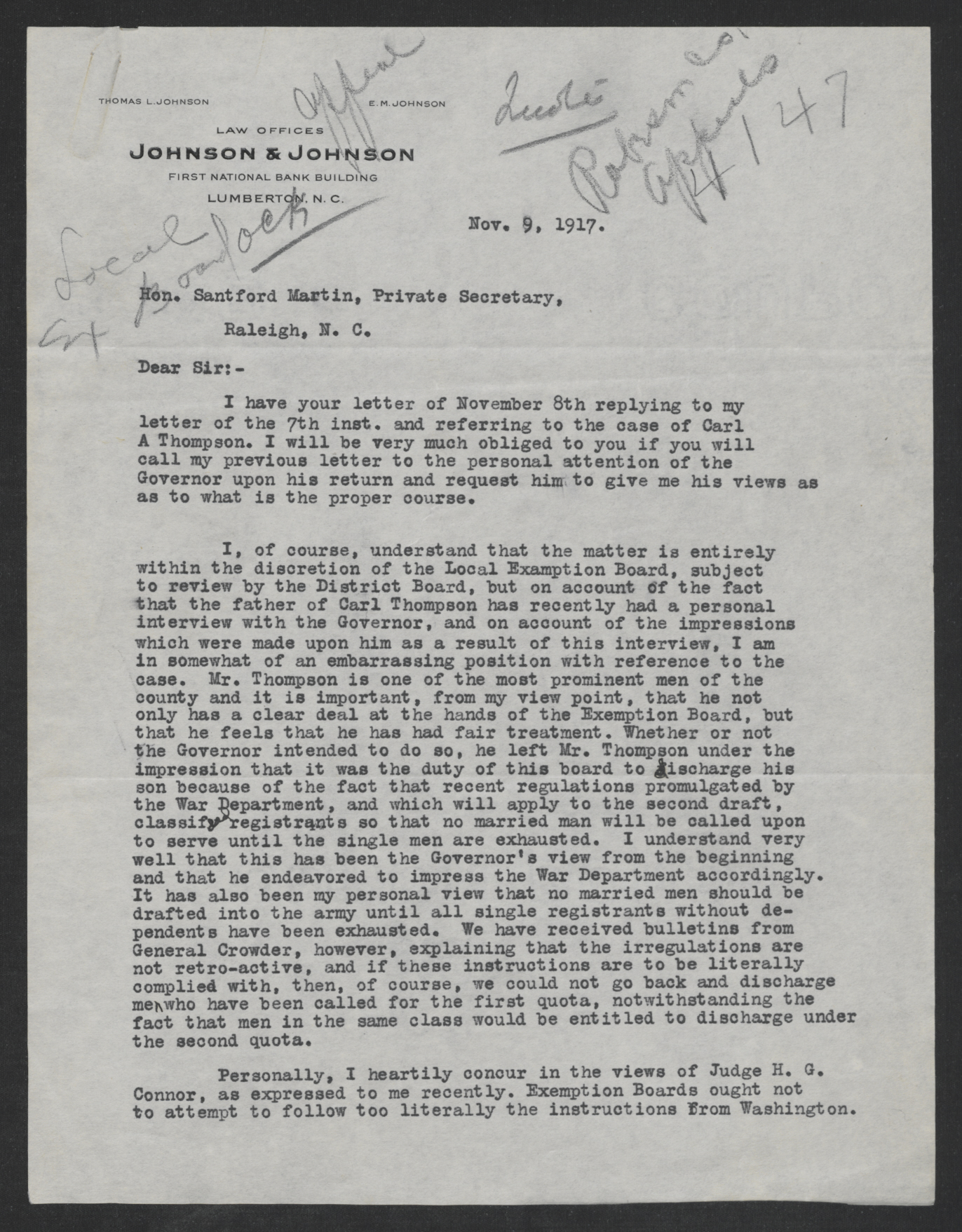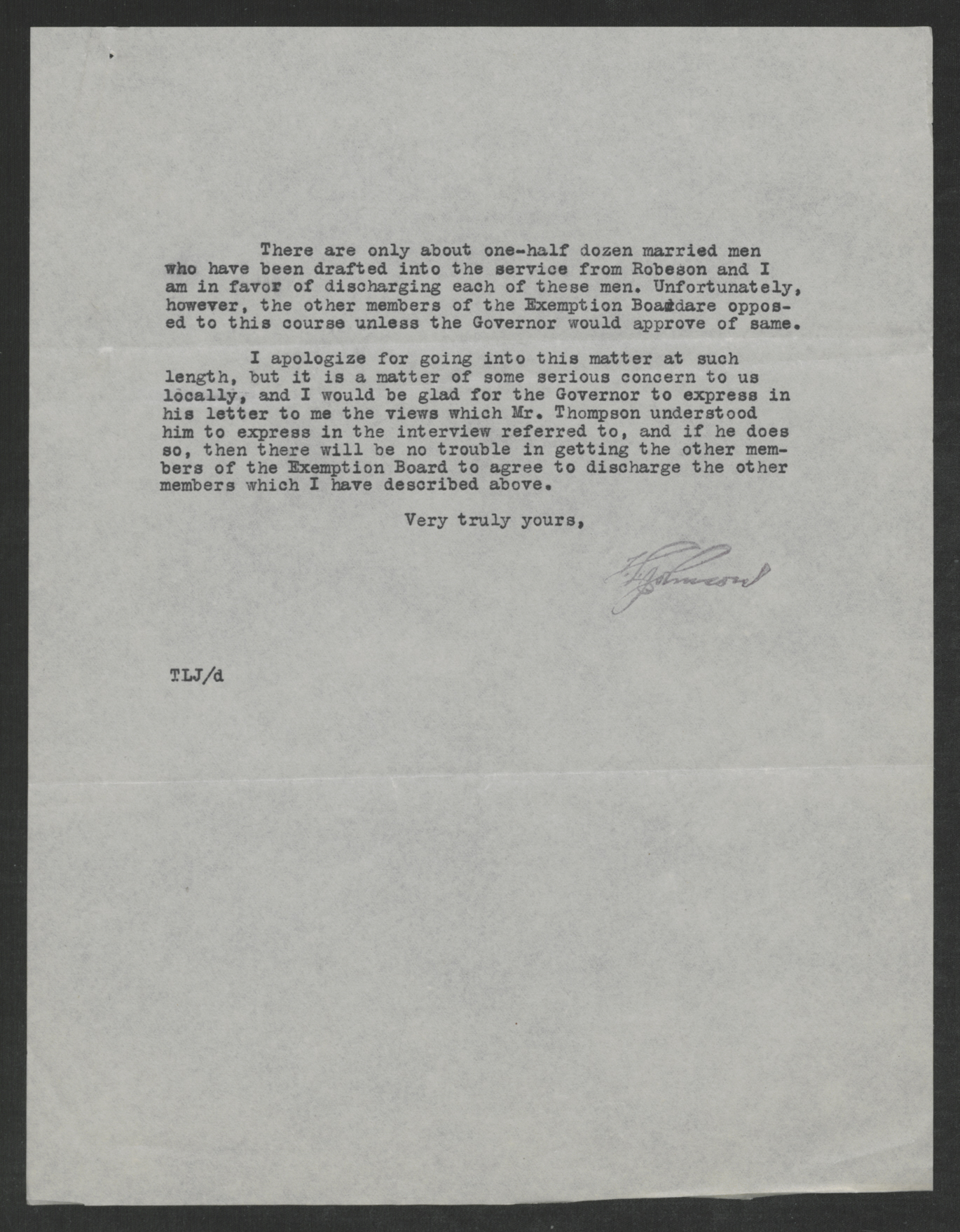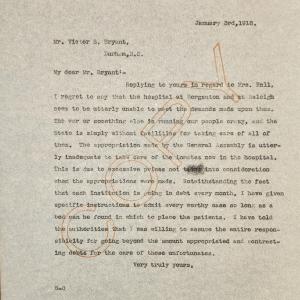LAW OFFICES
JOHNSON & JOHNSON
FIRST NATIONAL BANK BUILDING
LUMBERTON, N.C.
Nov. 9, 1917.
Hon. Santford Martin, Private Secretary,
Raleigh, N.C.
Dear Sir:-
I have your letter of November 8th replying to my letter of the 7th inst. and referring to the case of Carl A Thompson. I will be very much obliged to you if you will call my previous letter to the personal attention of the Governor upon his return and request him to give me his views as as to what is the proper course.
I, of course, understand that the matter is entirely within the discretion of the Local Examption Board, subject to review by the District Board, but on account of the fact that the father of Carl Thompson has recently had a personal interview with the Governor, and on account of the impressions which were made upon him as result of this interview, I am in somewhat of an embarrassing position with reference to the case. Mr. Thompson is one of the most prominent men of the county and it is important, from my view point, that he not only has a clear deal at the hands of the Exemption Board, but that he feels that he has had fair treatment. Whether or not the Governor intended to do so, he left Mr. Thompson under the impression that it was the duty of this board to discharge his son because of the fact that recent regulations promulgated by the War Department, and which will apply to the second draft, classified registrants so that no married man will be called upon to serve until the single men are exhausted. I understand very well that his has been the Governor’s view from the beginning and he endeavored to impress the War Department accordingly. It has also been my personal view that no married men should be drafted into the army until all single registrants without dependents have been exhausted. We have received bulletins from General Crowder, however, explaining that the irregulations are not retro-active, and if these instructions are to be literally complied with, then, of course, we could not go back and discharge men who have been called for the first quota, notwithstanding the fact that men in the same class would be entitled to discharge under the second quota.
Personally, I heartily concur in the views of Judge H. G. Connor, as expressed to me recently. Exemption Boards ought not to attempt to follow too literally the instructions from Washington.
There are only about one-half dozen married men who have been drafted into the service from Robeson and I am in favor of discharging each of these men. Unfortunately, however, the other members of the Exemption Board are opposed to this course unless the Governor would approve of same.
I apologize for going into this matter at such length, but it is a matter of some serious concern to us locally, and I would be glad for the Governor to express in his letter to me the views which Mr. Thompson understood him to express in the interview referred to, and if he does so, then there will be no trouble in getting the other members of the Exemption Board to agree to discharge the other members which I have described above.
Very truly yours,
TLJ/d






